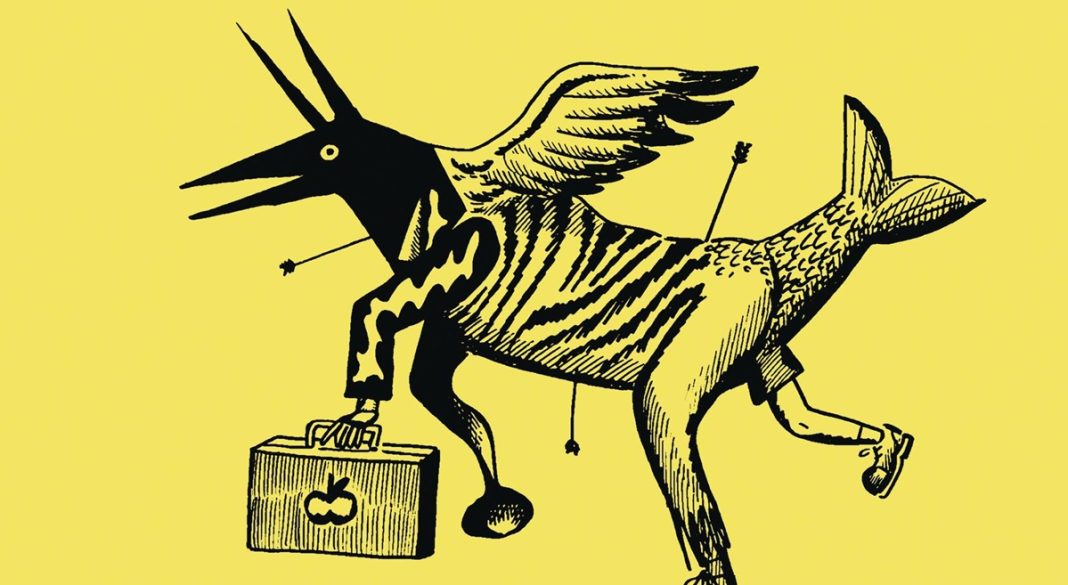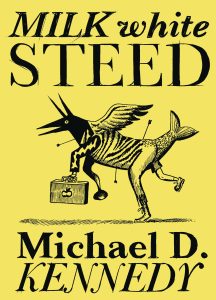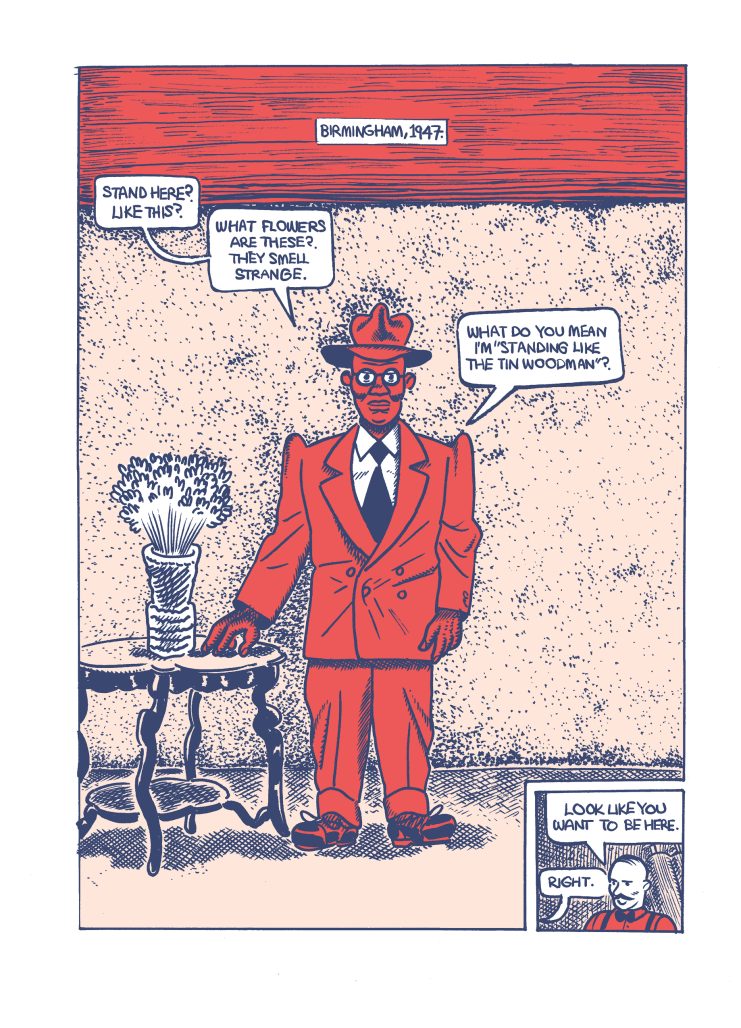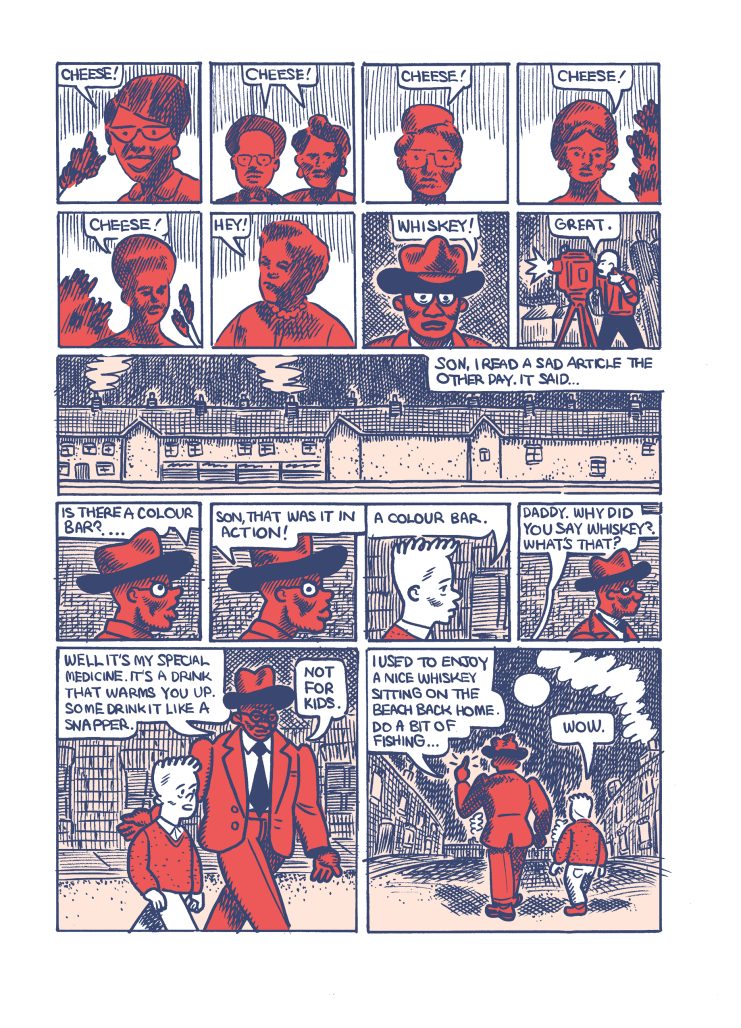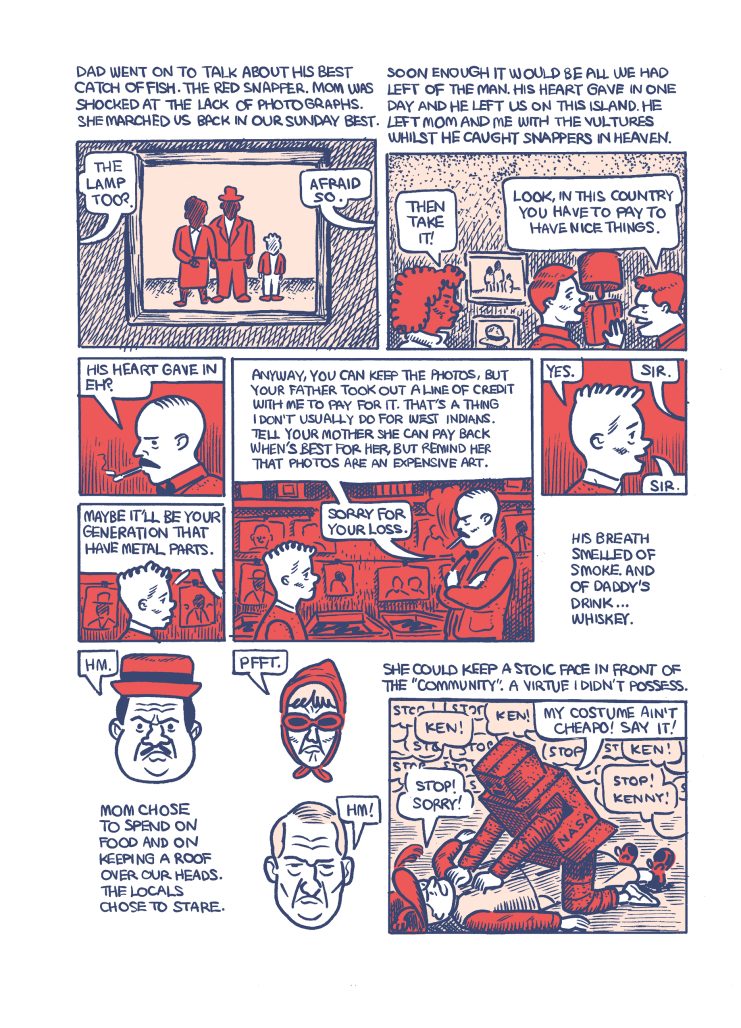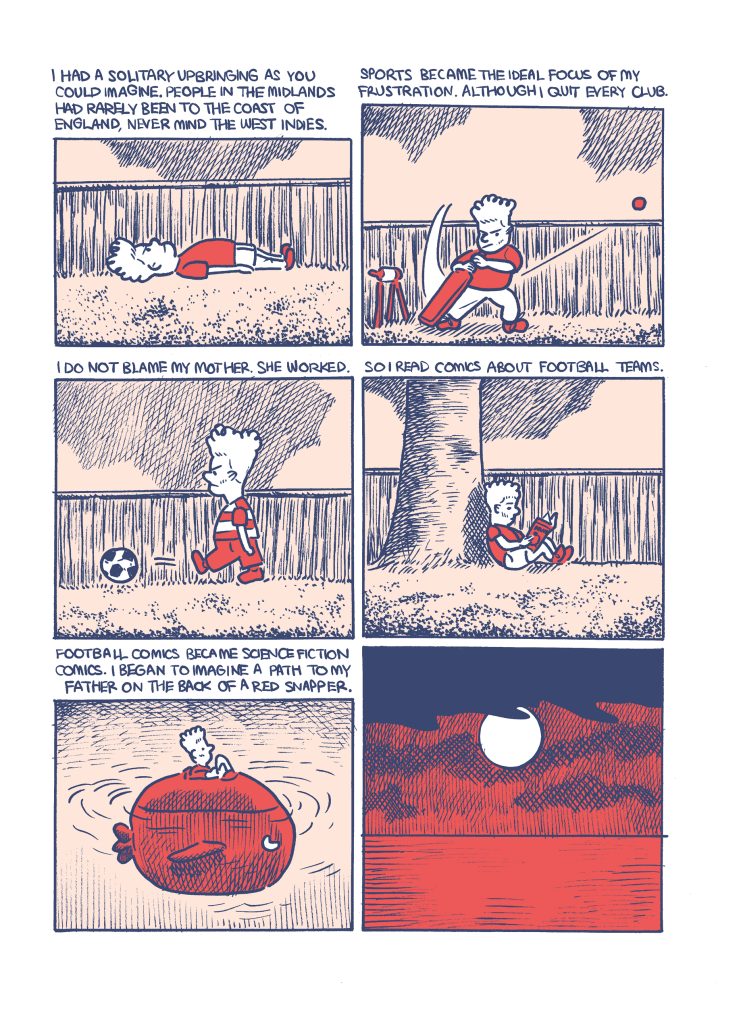 Milk White Steed
Milk White Steed
Cartoonist: Michael D. Kennedy
Publisher: Drawn & Quarterly
Publication Date: February 2025
I find it difficult to start reviewing Michael D. Kennedy’s Milk White Steed. This may be because it wasn’t what I expected, though what I thought I was expecting feels lost in a memory I may have never had. This may be because I’m American and white and this book is so firmly entrenched in the experience of being Black in Britian. This may be because I don’t really want to review this book, rather I’d like you to read it too and then talk with me about it. This all may be it. Or it may be something completely different. I only continue through my lack of surety for one simple reason: I think this book is incredible.
Milk White Steed is a collection of 10 short comics that all pull from Kennedy’s experiences as a Brit with Caribbean roots with deep connections to folktales. He merges this with surreal images and stories to comment on the ways Black existence can be understood. Wait. That’s not exactly right. Let me try again. Milk White Steed is a metaphorical dream broken into ten parts that vary from incredibly funny to shockingly fantastic that helps the reader better see the varied experiences of reality. Or maybe it’s ten comics as poems, connecting metaphor and meaning not through the closure between panels but the closure between the color, image, panel, and page. It could just be ten new ways to see the world. Or ten jokes. One giant reconfiguring of how vision and understanding can work.
The work here isn’t easy to follow. Like smoke, it’s a little translucent, unclear where the air may take it next. Kennedy’s work encourages close attention and continually rewards that attention with small moments of surreal joy. The songwriting woman who eats the mushrooms growing in her home that her philandering musician husband leaves her in becomes a radio station and fungal being of yellow who transforms into a yellow bird, finally free, is joy distilled to its finest form. If you read too quickly or blink too often, you may miss it. You may ask, “What just happened?”
This part of the narrative, the part where there isn’t a direct, linear storytelling, was the hardest for me to digest. At first. But, I’m a poet too. So, when I started reading it as I do poetry, with mystery and not-knowing at the center of my experience, trusting Kennedy to bring me where he intends to, it became easier. To expect to read this like you would most single issues you pull from your local comic shop is to misunderstand the magic taking place. Or, maybe we do read it just like a superhero comic. If we believe that a billionaire would dress as darkness to fight crime instead of using his money to enrich his community (and more importantly see this as “good”) then maybe Kennedy’s book isn’t so far off from the amount of closure necessary to enjoy our favorite superheroes.
Maybe thinking about the parts will help. The colors and the deployment of space and paneling is something to be envied, even studied. There are pages here with small square panels that feel like frantic dreams you don’t want to wake up from (“In the Blue Corner”) and there are stories that are so absurd you want to bath in their light (“Duke Ellington on Mars”). The panels and pages often surprise because of their willingness to move beyond a traditional understanding of sense, but it’s the gutters that really punch this through. Those spaces between the images where anything and everything can exist at once allows Kennedy’s play to be believable. Or, at least, within the confines of a comic. This is an excellent understanding of the comics medium and execution of what makes it great.
Throughout the book, as well, Kennedy deploys a distinctly gorgeous play of solid, primary colors with black and white drawings that brings a level of emotionality to some panels that we may assume is reserved for other visual arts. These colors move with the page and panel in a way that pulls your eyes swirling and bobbing through each story. The way that Milk White Steed uses color makes me want to understand color theory better. I imagine there’s a whole other world within the choices that these colors present.
Even with this being said, an summary of the comic is harder to pin down. There are broad brushstrokes that can be applied like discussed above but, for this book, these feel reductive rather than helpful. Sure, you can read the first story “Inglan” and even the one that follows, “The Green Man”, as critiques of British culture’s treatment of non-white people and get a lot out of that. “Inglan” even ends with the character in the trashcan saying, “England is a bitch.” While this reading is accurate, it also misses out on the subtle comedy of these comics as well. Kennedy is funny as well as surreal. Like the best comedy, it is piercing in what it makes fun of and has that dollop of tragedy that makes the bite draw blood.
The surreal narrative movements might be the thing that turns most traditional readers of comics off of this book but I think that would be a mistake. First, because if you’re picking up a Drawn & Quarterly book expecting something not within their brand, that seems like a “do some more research” problem. But, secondly, I encourage you to give it a shot because like most literature and art that is challenging, it starts to rewire your brain towards a deeper, fuller understanding of what living on this planet can be. “My Love” is an excellent example of this that has dialogue and writing that doesn’t always match up with the panels. It’s fair to say that there might be no writing or dialogue that could. But by the end of this journey of a, maybe, bird to leave one planet to go to the planet where their love resides, there’s something gorgeously prescient about the existence of these beings. I was sent back to the beginning of the story, immediately, to see how the end works, loving the interplay between shape, color, and story.
There’s deep beauty in Milk White Steed that deserves your time and patience. Michael D. Kennedy’s debut graphic novel is nothing short of a color-filled scream into the world of comics. It takes the medium’s ability for audience participation in meaning-making and helps stretch those boundaries of what we understand as comics. Hopefully this is the first of many more books to come where Kennedy has us asking ourselves if the zebra is really there or if we’ve been drinking too much again.
Verdict: Take your time with it and you’ll be rewarded
Milk White Steed is out now
Read more great reviews from The Beat!



